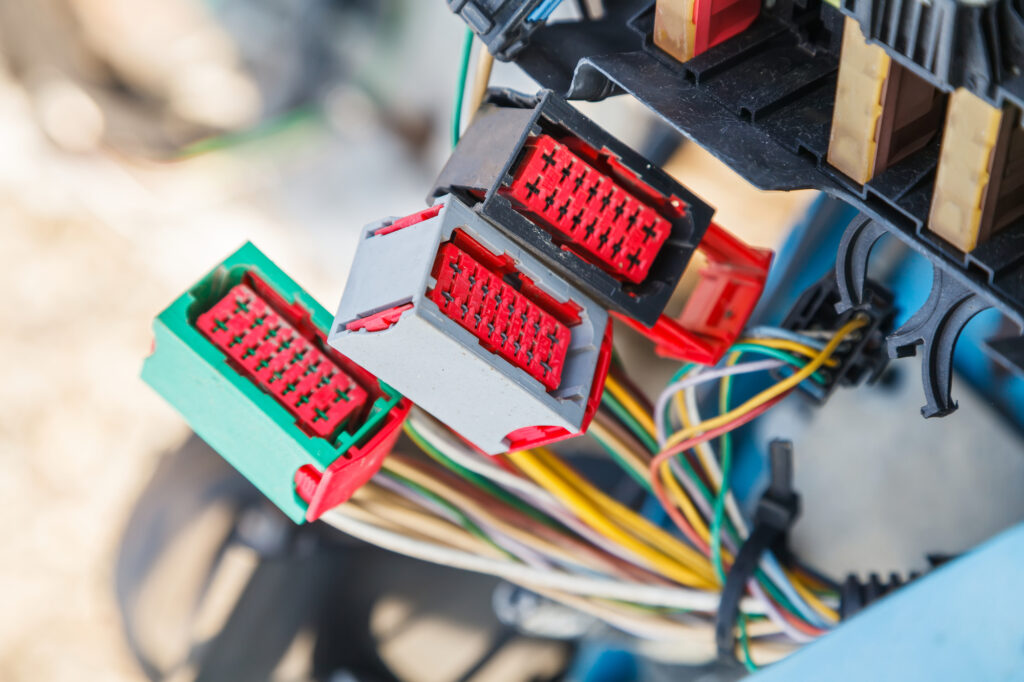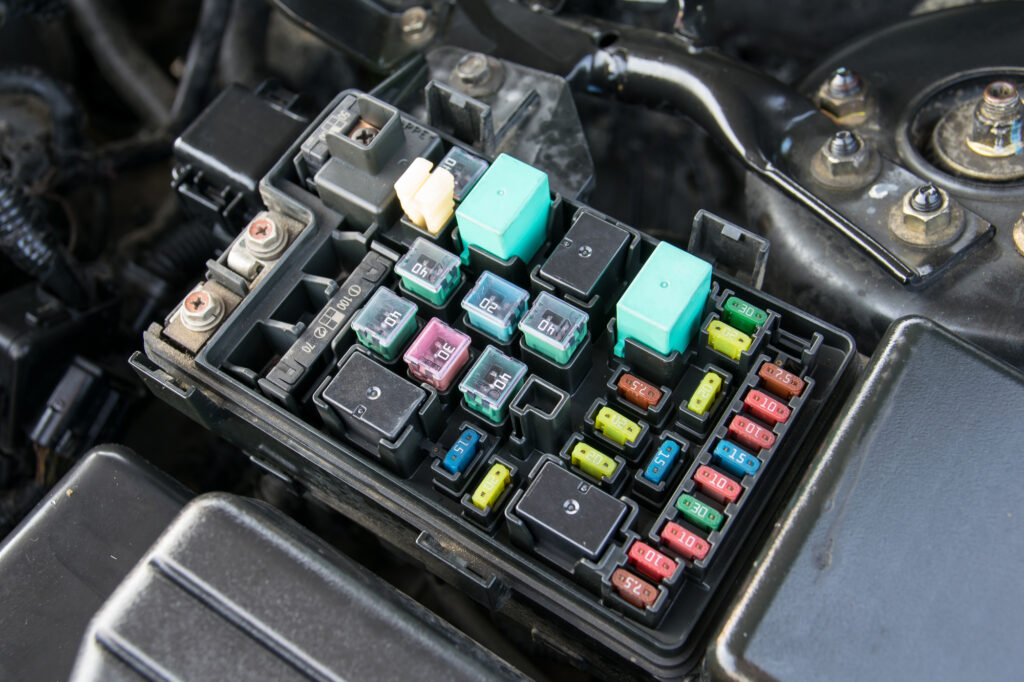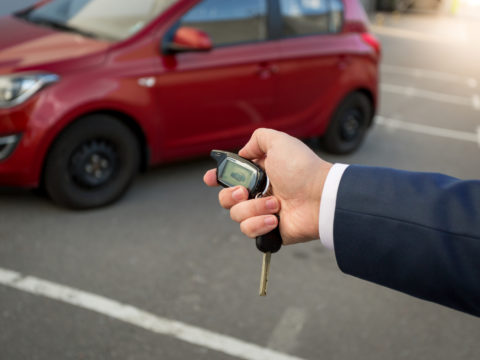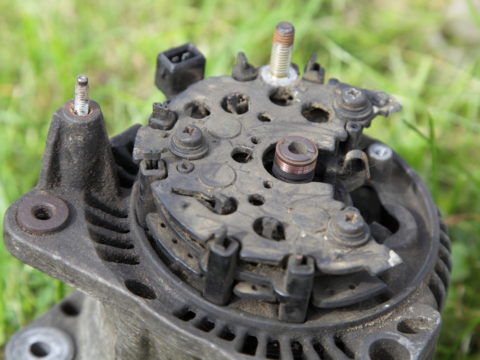Cars rely on a complex network of electrical systems to run smoothly. From the engine to the turn signals, everything needs electricity to function. Your electrical system can cause many problems when something goes wrong.

In short, a blown fuse is the most common cause of a car losing all electrical power. Check the fuse box for blown fuses first if your vehicle has lost all power.
This article will discuss some common symptoms of a car that has lost power and possible causes. We’ll also provide tips on how to get your vehicle back up and running.
Contents
Car Electrical System Overview
Your car’s electrical system consists of interconnected parts, including the battery, alternator, and starter. The battery provides power to the starter, which starts the engine. The alternator then takes over and powers the car while it’s running.
The alternator also powers the car’s electrical accessories, such as the headlights, radio, and power windows.
Electrical Short in Car Symptoms
A few telltale signs indicate you may have an electrical short in your car. If you experience the following symptoms, it’s time to take your vehicle to a mechanic.
The Engine Won’t Start
One of the most common signs of an electrical issue is a car that won’t start. If your car has power but won’t turn over, it may be due to a faulty starter or battery. In addition, the ignition system could be an issue if your car turns over but won’t start.
The Dashboard Lights Flicker
Another common sign of an electrical problem is flickering dashboard lights. This symptom usually indicates a loose connection or a problem with the alternator.
The Car Stalls
If your car stalls while driving, it’s usually a sign of a severe electrical issue. This problem can be caused by several factors, including a failing alternator or battery.
What Would Cause a Car To Lose All Electrical Power?
While there are many potential causes of a car losing power, some of the most common reasons that your car is losing power include the following.
A Blown Fuse
Fuses protect your car’s electrical system from damage. If a fuse blows, it’s usually due to an electrical surge or short. Not only that, but a blown fuse can cause other fuses to blow as well, leading to a domino effect that could disable your entire electrical system.
A Loose Battery Connection
If your battery is not connected correctly, it can cause an electrical short. This loose connection can be due to a loose battery terminal or corrosion. Not only that, but a loose battery connection can prevent your car from starting.
A Faulty Alternator
The alternator is responsible for powering your car while it’s running. If it fails, your vehicle will lose power and eventually stall. Alternator failure is usually due to a faulty electrical component or belt.
A Dead Battery
A dead battery is one of the most common causes of a car losing power. Batteries only have a limited lifespan and will eventually need to be replaced. If your battery is more than three years old, it’s time to have it checked by a mechanic.
A Bad Starter
The starter is responsible for starting your car’s engine. If it fails, your car won’t start. A bad starter can result from a faulty electrical connection or a bad starter solenoid.

What To Do if Your Car Has No Power at All?
If your car slows down or stalls due to an electrical issue while driving, it’s one thing. However, if your vehicle has no power, it’s a sign of a severe problem that you need to address immediately.
If your car has no power at all, here are some things to check immediately.
Check Your Battery
One of the very first places you should check is your battery. How old is it? If your battery is over three years old, it’s probably time to replace it.
The reason is that batteries have a limited lifespan, and you will eventually need to replace them. A loose battery connection can also cause your car to lose power, so make sure the terminals are tight. If they’re loose, tighten them up.
Finally, you need to clean your battery if it is corroding or leaking. Corrosion can prevent your battery from starting your car by causing an electrical short.
You’ll notice that your battery is corroding or leaking if it has a powdery substance on the terminals called anhydrous sulfuric acid. You can clean this substance off with a wire brush. Doing this will help the connection between your battery and your car.
There are cleaning sprays and battery terminal protection sprays yu can buy to prevent corrosion from effecting your battery in the future. These sprays are available at auto parts stores and online.
Check Your Alternator
If your car has power but won’t start, it may be due to a failing alternator. The alternator is responsible for powering your car while it’s running. If it fails, your vehicle will lose power and eventually stall. Alternator failure is usually due to a faulty electrical component or belt.
The best way to tell if your electrical problem is due to the battery versus the alternator is to jump-start your car. If the vehicle starts, it’s likely the battery. If it doesn’t, the problem is probably the alternator. The reason is that a failing alternator can’t recharge a dead battery.
Check Your Starter
If your car has power but won’t start, it may also be due to a bad starter. The starter is responsible for starting your car’s engine. If it fails, your car won’t start. A bad starter can result from a faulty electrical connection or a bad starter solenoid. However, it’s important to remember that while the starter could be fine, you may need to replace the solenoid.
Check The Fuse Box
If your car has no power, it could be due to a blown fuse. A blown fuse can cause your vehicle to lose power by disrupting the electrical current.
The best way to check if a fuse is blown is to use a multimeter. Set the multimeter to the “ohm” setting and touch the two leads to the fuse terminals. If the reading is zero, the fuse is blown, and you need to replace it. Replacing a blown fuse is easy and only takes a few minutes.
Conclusion
If your car has no power, it’s a severe problem. The most common causes of a vehicle losing power are a dead battery, a bad starter, and a blown fuse.
However, other less common reasons exist, such as an alternator failure or a loose battery connection.
If you’re having trouble diagnosing the problem, it’s best to take your car to a mechanic. They will be able to diagnose and fix the problem quickly.














